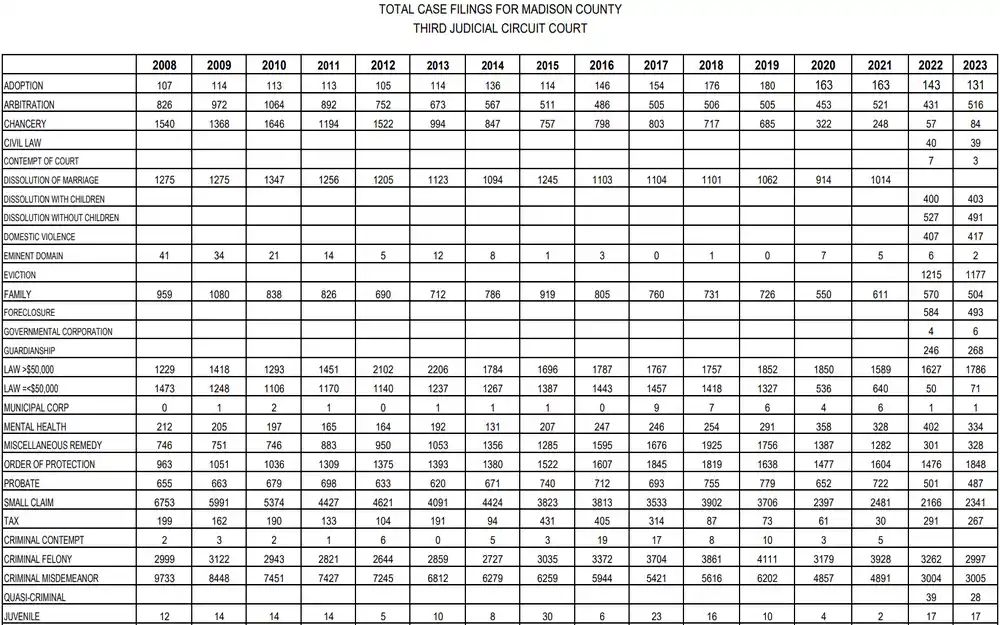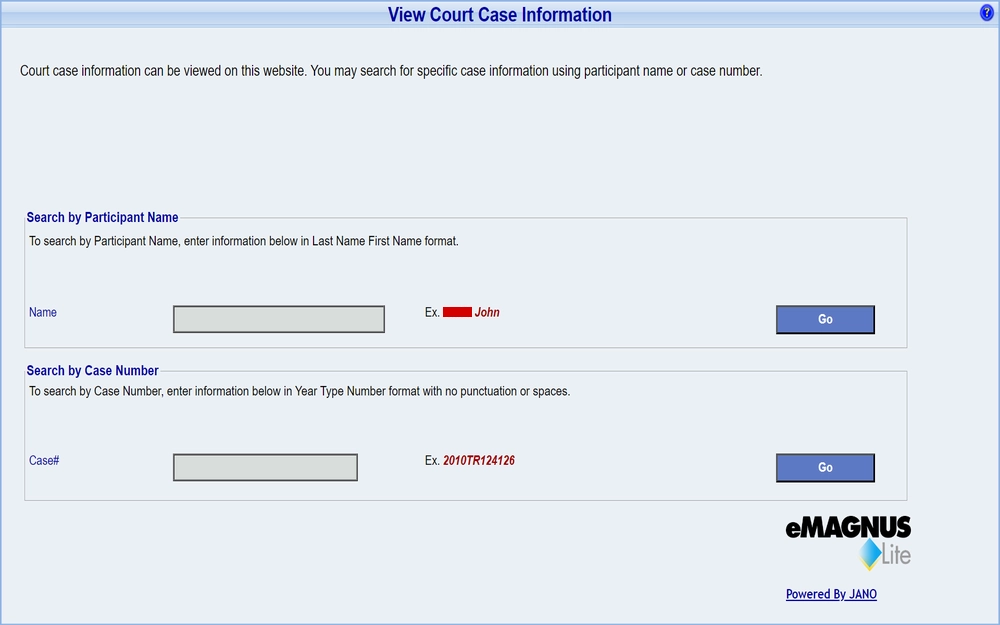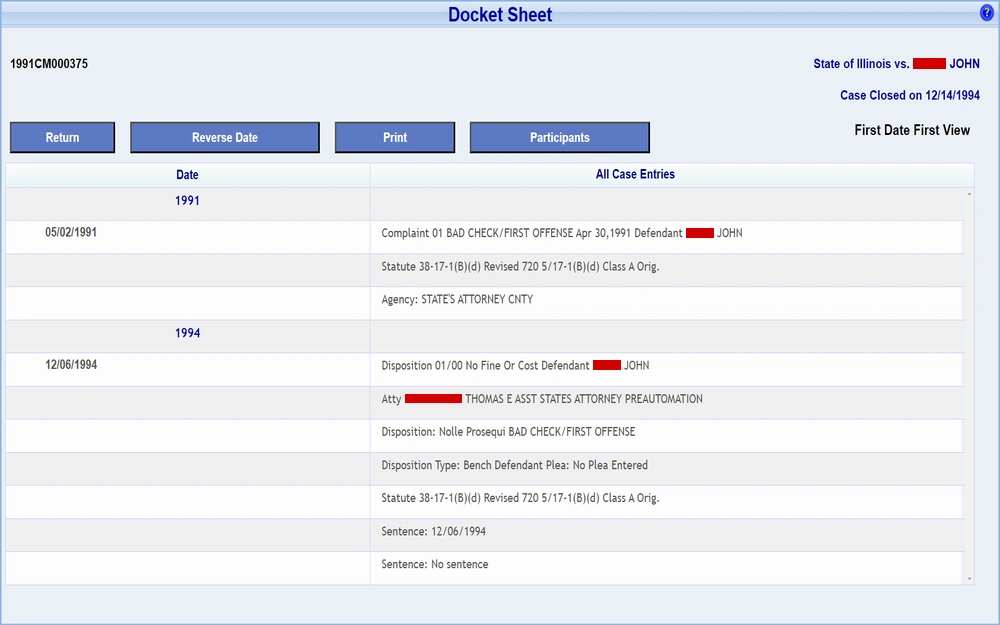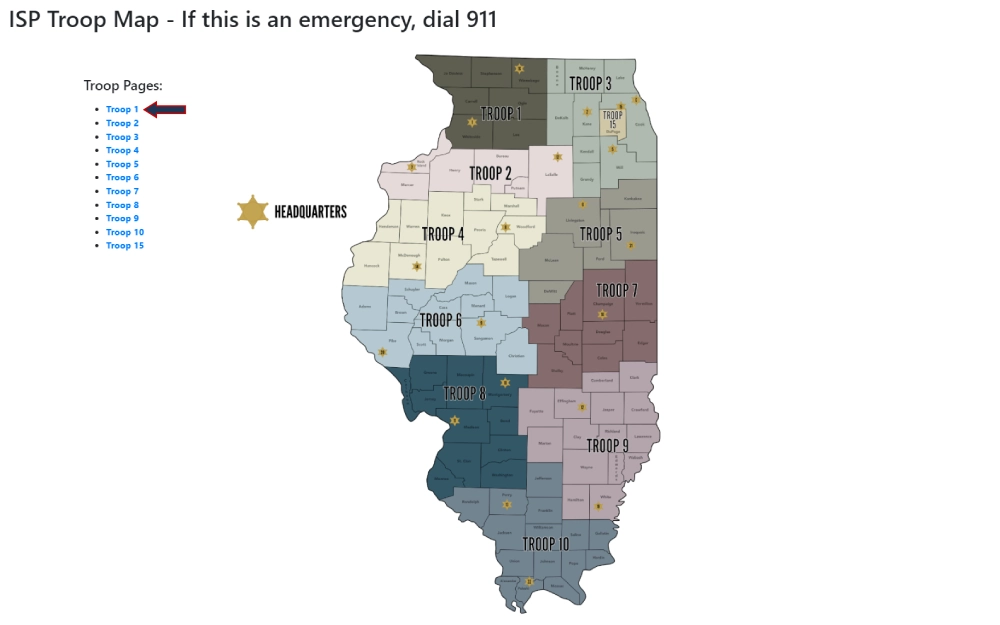Perform a free Madison County warrant search today using lookup tools provided by county and state agencies. People may be faced with a warrant for many reasons, and it’s important to be able to access information that can help deal with this challenging situation.
The Illinois Freedom of Information Act requires warrant information to be made available, except when public knowledge might hinder an ongoing investigation.
This resource presents concerned citizens with valuable tools and strategies for quickly finding information about warrants in Madison County, Illinois.
An Overview of Conducting a Free Madison County Warrant Search (Illinois)
There’s value in being able to access information about active warrants, because when someone is faced with a challenging situation, it’s important to understand what’s happening and how to better handle it. When a concerned citizen can search for warrants and retrieve its details they become better equipped to address it.
The Illinois Freedom of Information Act establishes the rules for public records to be shared with citizens interested in them.1 Open warrants are part of the records that are available to be searched and checked by people in the state.
With that in mind, it’s always important to remember that there are different types of warrants, which can be issued for different purposes. More details about the different warrants issued in Madison County will be discussed below in this article.
Citizens concerned about any warrants should know that it’s possible to readily access information about them using a variety of tools and resources. For example, people can rely on the Madison County Sheriff’s Office, which is responsible for keeping and executing all warrants in the county.2
Likewise, they can also work with the Madison County Circuit Court Clerk’s Office, which has a valuable tool for concerned citizens to look up information about court cases and warrants.3

Whatever the chosen tool, the main factor to always consider is that it’s possible to handle warrants in a proactive fashion. This article addresses all those aspects in detail, next, to help concerned citizens navigate dealing with a warrant as smoothly as possible.
How To Verify Whether Someone Has a Warrant in Madison County Illinois
When searching for court orders issued in Madison County, it’s important that people know that it’s the Sheriff’s Office’s responsibility to keep and execute all warrants and summons in that area. After a warrant is issued by the Circuit Court, law enforcement takes over to make sure that the order is promptly executed.
The Sheriff’s Office provides no instructions to citizens on their website on how to handle warrants or how they can help if anyone is ever faced with that situation. The reason for it is that whenever someone who has an open warrant against them contacts or visits law enforcement, they may be arrested on the spot. Therefore, not providing information and having people visit them in person facilitates the execution of the warrant.
There are other ways to address an outstanding warrant and they’ll be discussed below. However, if contacting the Sheriff’s Office is the chosen approach, this is how concerned citizens can do so:5
Madison County Sheriff’s Office
405 Randle St
Edwardsville, IL 62025
Phone: 618.692.6087
Fax: 618.656.1210
An alternative way to search for a warrant is to work with the Madison County Circuit Clerk’s Office. They help citizens readily access information about all court cases in the area, including information about warrants issued by local judges in all sorts of lawsuits being tried by them.
This is conveniently done through the View Court Case Information tool, which is a self-help resource that allows interested individuals to search for information on their own.6 Searches can be done by name or by case number.

When searching by name, which is more common, users can look for a last name only or a full name. The system requires inputting the last name first, followed by the individual’s first name. It’s not often how people assume it should be done this way, so there’s an example on the page on how to do it correctly.
When the results appear, they show information such as case number (which is useful to request records if it becomes necessary), the full name of the party involved in the incident, year of birth, and case type.
By clicking on the case, searchers are able to see more details. For example, it’s possible to see if the case is open and when the next court date is. Also, and more importantly, if the searcher clicks on the Docket Sheet, they can see if a warrant was issued, if it has been executed, or if it remains outstanding.

If the information on the website isn’t sufficient and clarification is needed (or even if the searcher wishes to obtain more support), this is how they can contact the Madison County Clerk’s Office.7
Madison County Circuit Clerk
155 N Main St
Edwardsville, IL 62025
Phone: 618.692.6240
Tip: For other relevant information on local offenders, you can utilize the guidance and search tools offered in the Madison County mugshot lookup instructions or the tutorial for finding arrest details.
Understanding Various Warrant Types & Why They’re Issued
Warrants are issued by judges to inform citizens that an order was made and they must comply with it.
The warrant also informs the public about what a judge has ordered within a court proceeding. However, many different types of warrants can be issued – which is only more reason for people to seek out legal counsel whenever they’re faced with one of those.
These are some of the most common warrants issued in Illinois, along with reasons they may be issued:
- Bench Warrants – those are usually issued when someone fails to appear in court on a set date or to obey a court order. In Illinois, they’re also known as Bond Forfeiture Warrants because most people who have committed to appear in court have posted some type of bond to be released from jail.
Law enforcement can arrest someone on a bench warrant at any time, potentially causing an embarrassing situation. That can be avoided just by appearing in court when requested and following the instructions that are received during the proceedings.
- Arrest Warrants – are issued by a judge after law enforcement shows probable cause. In other words, when there’s reason to believe that a crime has been (or will be) committed or that evidence is likely to be uncovered about a crime, the court may issue an arrest warrant to bring the offender in.
In some cases, the offender is allowed to post bond and wait for trial as a free person. In other cases, they have to remain in custody until the court proceedings are finalized. Usually, this is determined by how serious the crime committed was and how dangerous the offender is.
- Search Warrants – those are issued when law enforcement believes that someone may have evidence about a crime in their possession. Those warrants allow them to search someone’s property and seize anything that may potentially be connected to the crime that’s being investigated. In most cases, seized items and property are returned to the original owner after the investigation is finished.
When someone is arrested based on a warrant issued in Illinois, they are often allowed to post bail and wait for trial for free. It’s important to understand, though, that there are different types of bonds which have different requirements and consequences.
It’s the judge’s decision which bond will be set for any offender but it’s still valuable to understand the differences. Those are the common types of bonds in Illinois:
- I-Bond – allows an offender to be released without paying anything, just by signing a commitment to appear in court when requested.
- D-Bond – requests that an offender posts 10% of whatever amount the judge determines. For example, if the bond for that person is set at $10,000, they must post 10% of that amount, which is $1000, in order to be released.
- C-Bond – demands that the person who was charged posts the full amount determined by the judge if they want to be free while waiting for trial.
- No-Bond – is when the judge decides there will be no bond, and the offender must wait in jail for their trial.
How To Respond to an Outstanding Warrant in Madison County (Get the Order Dropped or Resolved)
Dealing with a warrant is never fun. It doesn’t matter if that warrant is for themselves or someone they care about, people who have to handle a court order are often stressed and need support in order to make the best possible decision and choose a smart course of action.
Some people opt to contact law enforcement directly and try to manage the problem with them. It’s important to keep in mind that if there’s an open warrant and that person goes straight to the Sheriff’s office, for example, they’ll likely be arrested on the stop. Considering there may be other ways to manage the situation, looking at other options is important.
Still, if the decision is made to go to the Sheriff’s Office, this is where concerned citizens should go:
Madison County Sheriff’s Office
405 Randle St
Edwardsville, IL 62025
Phone: 618.692.6087
Fax: 618.656.1210
One of the alternatives is to, instead of contacting law enforcement, the target of the warrant contact an experienced attorney. By hiring a lawyer, that individual would have someone who can speak on their behalf to both law enforcement and the court. Also, they’d be able to obtain reasonable counsel and make a good decision on how to move forward.
Another thing to take into consideration is that some warrants can be dealt with just by paying a fine or scheduling a date and time to appear at the court.
Last, but not least, if a decision is made and the best option is to turn themselves in to law enforcement, two steps are important to be followed.
First, people should contact their families and let them know about their decision. If the family isn’t around, then friends should be contacted, as they can be supportive while they go through this. Second, they should make arrangements with a bond company that can step in as quickly as possible to ensure that the individual is released without delay.
For situations when a concerned citizen has information about a wanted individual, one suggestion would be to let law enforcement know by contacting their tip lines. The Madison County Sheriff’s Office has an anonymous tip line that anyone can call: 618.296.3000.8
For incidents that happened in other areas, citizens can work with the Illinois Division of Criminal Investigation and contact them by phone or email using the following information: 217.782.1320 or [email protected].9

When concerned about a possible court order being issued against them, local citizens can now feel empowered to perform a Madison County warrant search using the guidance and tools within this resource.
To expand to a wider scope, you can refer to the Illinois warrant lookup steps; for other offense and sentencing information throughout the state, search IL arrest and criminal history details.
References
1Illinois Prisoner Review Board. (n.d.). Freedom of Information Act. Retrieved January 13, 2024, from <https://www2.illinois.gov/sites/prb/Pages/Freedom-of-Information-Act.aspx>
2Madison County Sheriff’s Office. (n.d.). Sheriff’s Office. Retrieved January 13, 2024, from <https://www.madisoncountyil.gov/departments/sheriff/>
3Madison County Circuit Clerk. (n.d.). Court records search. Retrieved January 13, 2024, from <https://www.madisoncountyil.gov/departments/circuit_clerk/court_records_search.php>
4Madison County Circuit Clerk. (2023). 2008-2023 Total Case Filings [PDF]. Retrieved January 17, 2024, from <https://cms4files.revize.com/madisoncountyilus/document_center/CircuitClerk/2008-2023%20Total%20Case%20Filings.pdf>
5Madison County Sheriff’s Office. (n.d.). Contact us. Retrieved January 13, 2024, from <https://www.madisoncountyil.gov/departments/sheriff/contact_us.php>
6Madison County Circuit Clerk. (n.d.). Court records search. Retrieved January 13, 2024, from <https://www.clericusmagnus.com:8443/profoundui/start?pgm=EDOCS/WDI040CL&p1=%20MA&l1=3>
7Madison County Circuit Clerk. (n.d.). About the Circuit Clerk’s Office. Retrieved January 13, 2024, from <https://www.madisoncountyil.gov/departments/circuit_clerk/about_the_circuit_clerk_s_office.php>
8Madison County Sheriff’s Office. (n.d.). Anonymous tip line. Retrieved January 13, 2024, from <https://www.madisoncountyil.gov/departments/sheriff/anonymous_tip_line.php>
9Illinois State Police. (n.d.). Criminal Investigations. Retrieved January 13, 2024, from <https://isp.illinois.gov/CriminalInvestigations>
10Illinois State Police. (n.d.). Patrol Troop Map. Retrieved January 13, 2024, from <https://isp.illinois.gov/Patrol/TroopMap>
